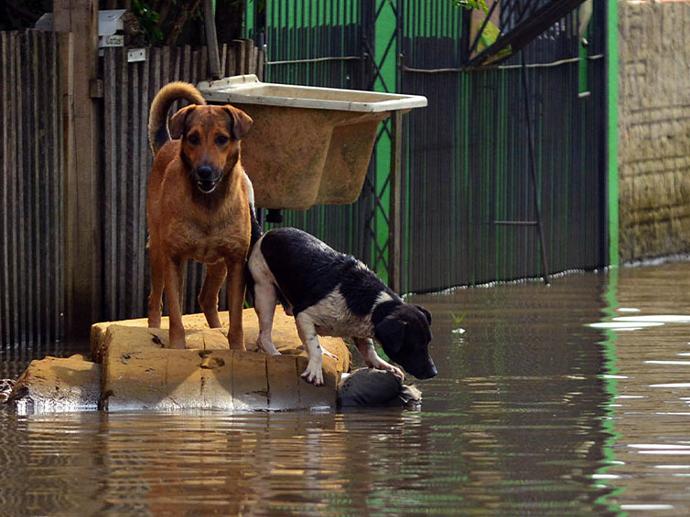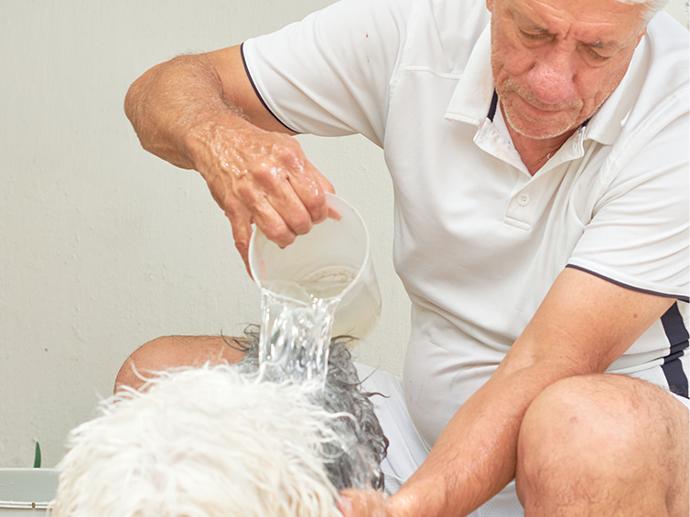The Veterinary Emergency Team (VET) from Texas A&M School of Veterinary Medicine & Biomedical Sciences (VMBS) is set to revolutionize pet safety post-disaster. Their new decontamination guidelines of removing external contaminants, such as toxic chemicals, is critical in keeping people and animals safe in emergency situations.
Why it matters
Disasters expose not just humans but our pets to a range of harmful substances. From irritants that might cause discomfort to potentially cancer-causing chemicals, the risks are real. Flooding, for instance, spreads not just water but a cocktail of toxins. Quick, effective decontamination is crucial to prevent long-term health issues.

What’s new
The guidelines detail everything from setting up decontamination stations to employing special bathing techniques to cleanse dogs efficiently. The aim? Equip communities with the know-how to plan effectively, ensuring they have the right resources at hand – from soap quantities to water allocation and volunteer numbers.
Streamlining decontamination
VET's experience across the US underscores the need for animal decontamination in disaster plans. Pets, often sheltered alongside their owners, can carry toxic residues in their fur, posing a risk to themselves and humans alike. The team's developed system can decontaminate a medium-sized dog in just 10-15 minutes, requiring about 12-15 gallons of water per dog.

Soap selection
Their research also delves into the best soap options for the job, finding that liquid dish soap, known for its oil-removing properties, outperforms antibacterial variants for most disaster scenarios.
Planning for variability
Acknowledging that real-life emergencies will involve dogs of various sizes and stress levels, these guidelines are a starting point. Further research aims to refine decontamination processes for a wider range of pets, including cats.
Towards a safer future
This initiative highlights the importance of comprehensive disaster planning that includes our pets. As veterinary professionals, incorporating such forward-thinking practices into emergency planning can significantly impact pet and public health safety.
AIV Vet supports veterinary clinics in ensuring their equipment is always ready for any situation. Our expertise in veterinary infusion pumps, IV fluid warmers and other critical tools means we're here to help you prepare for the unexpected. With new technology and reliable veterinary equipment, we're committed to enhancing animal care, one innovation at a time. 💼🛠️
Source:
Texas A&M Veterinary Emergency Team Develops New Decontamination guidelines for dogs | Texas A&VSBM News | February 26, 2024